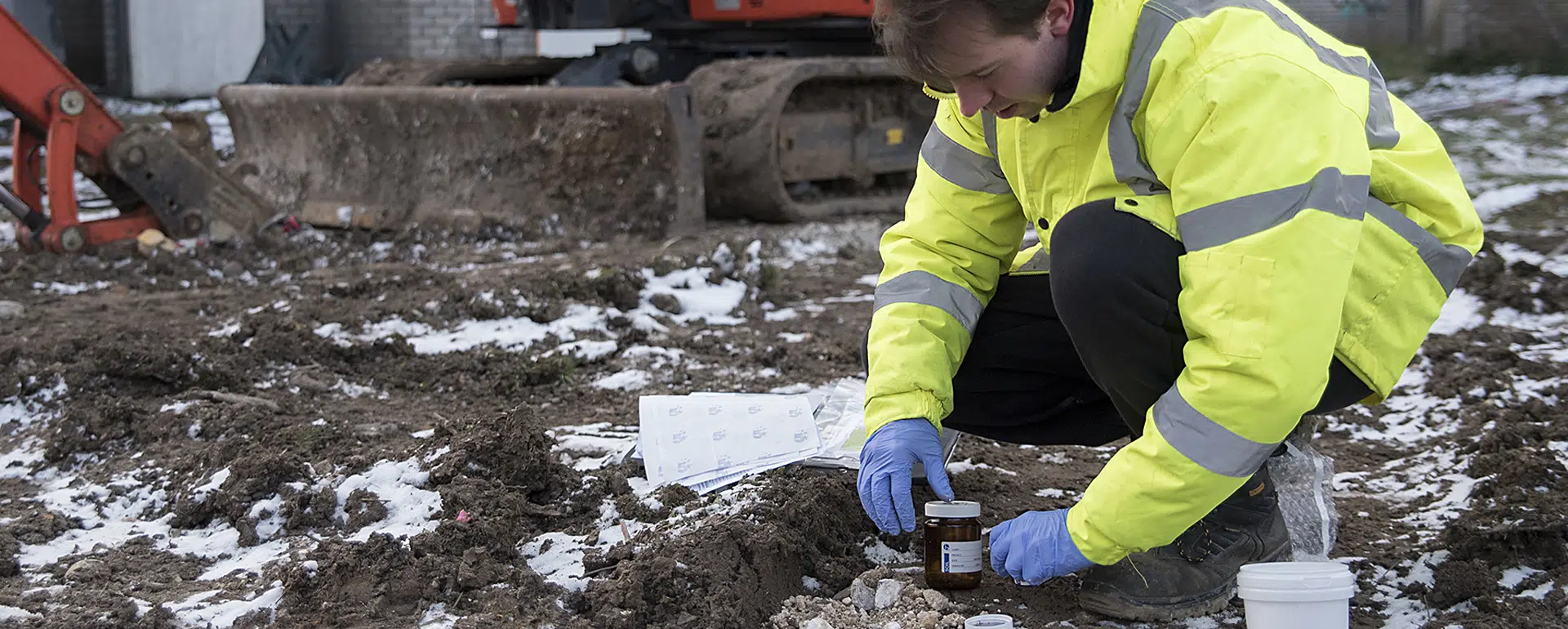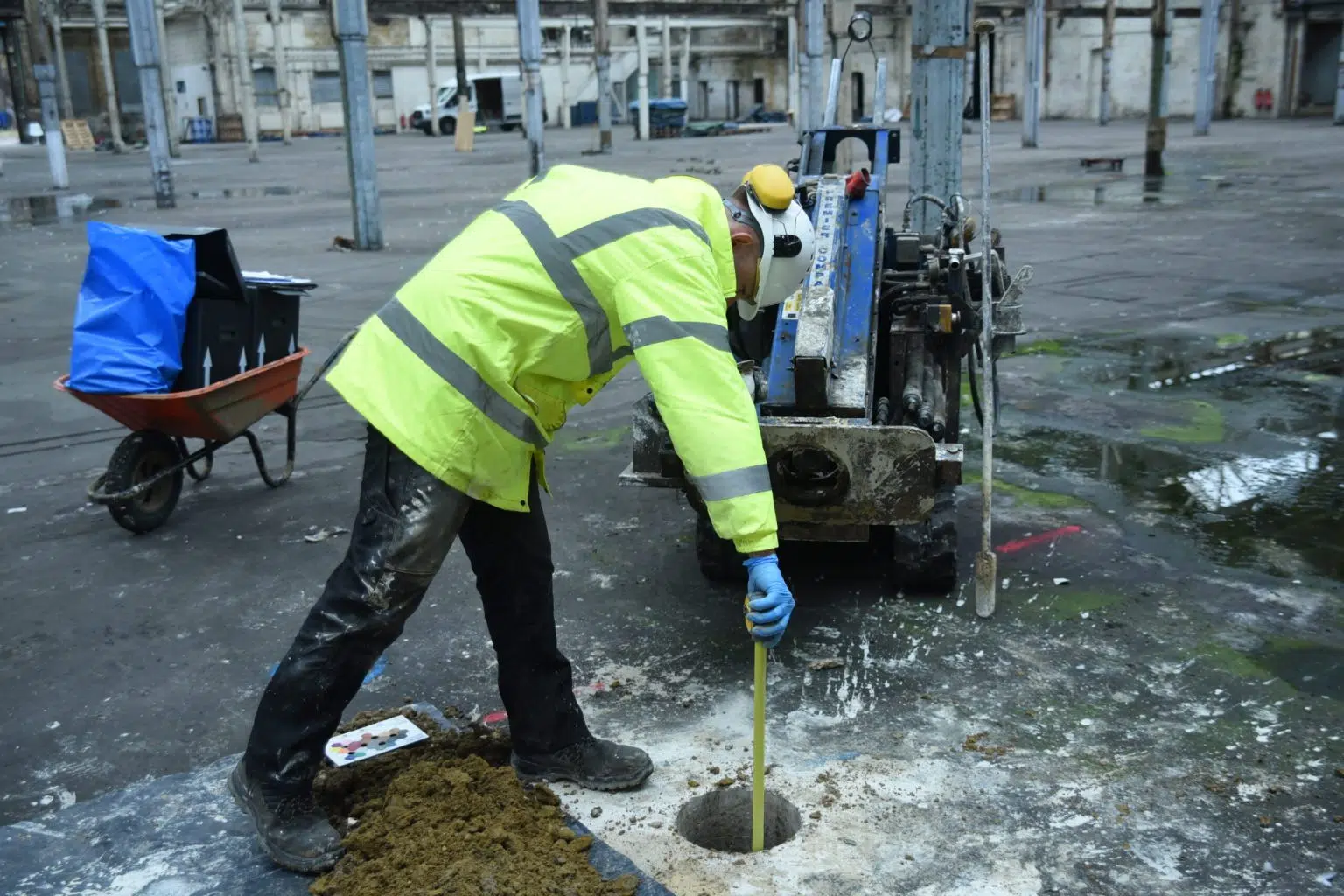Find out more about our site investigation services.

If your site requires a soil investigation, it can be confusing what method or type of investigation is required. Without the right investigation method there may be unnecessary delays and disruption to your project.
Your project has unique requirements that require a bespoke approach. From a large industrial site, rural barn, or residential garden – our consultants can advise the best methods of investigation to support your development.
Our proposals are prepared by experienced consultants who are committed to providing you with technically robust reports that are tailored to meet your needs.
The method of Site Investigation we use will be decided by three things:
There are various reasons you may require a Site Investigation. It could be a Phase 2 Investigation to check the soils for contamination, a Geotechnical Investigation to assess the soils for foundation design, Soakage Testing to aid drainage design, or a combination of all those things.
Our dedicated consultants will prepare a bespoke proposal for your requirements.
The right information being gathered in a Site Investigation is essential to ensure our reports deliver actionable assessments. We save you time and money by ensuring we advise the best method of investigation in our proposal.
When we are preparing your Site Investigation proposal, we will check British Geological (BGS) maps so that we know the general type of soils to expect under your site. This geology information, combined with the reason behind the investigation, allows our consultant to choose the right investigation method.
Just like construction above the surface, you need the right tools for the job. If your site is underlain by softer soils, most site investigation methods are available. However, if your site has stone or gravel soils, it may require a specific stronger machine to drill the appropriate holes.
The last element that decides your method of site investigation is the access on your site. Every site is different whether it is an existing terraced house, an empty field, or an active industrial estate. The access and space to investigate on your site is considered by our consultants.
We make safety a priority, so when we carry out a site investigation we check for underground services before carrying out any work. This protects the safety of our consultants and saves you costly delays that can happen with damaged services.
Our consultants will review your site and guide you through the complex process of undertaking a Site Investigation, so you can get your site approved and built.
We are ready to get started.

Find out more about our site investigation services.
How we can protect your construction site from unnecessary delays and costs. If piling is part of your construction plans, a piling risk assessment could be a vital step to avoid potential problems that could disrupt your project, including: Piling risk assessments are now explicitly referenced within the Environment Agency’s Land Contamination Risk Management Guidance […]
How we can protect...
Contamination is not always something that can be seen; often contamination is invisible, buried below ground or is present in perfectly normal looking topsoil.
This is a question...
What is a Phase 1 Desk Study? A Phase 1 Desk Study will determine if contamination could be present at your site, and importantly, if that contamination poses a risk to future site users or the environment. Why is a Phase 1 Desk Study needed for this site? If the Desk Study finds that the […]
What is a Phase 1...
When you are looking for an Environmental Consultant, it is important to choose the right one to guide you through the process. At Lustre Consulting, we are committed to our core values of being: Supportive: To support our customers as best we can professionally and personally. Reliable: Going out of our way to deliver a […]
When you are looking...